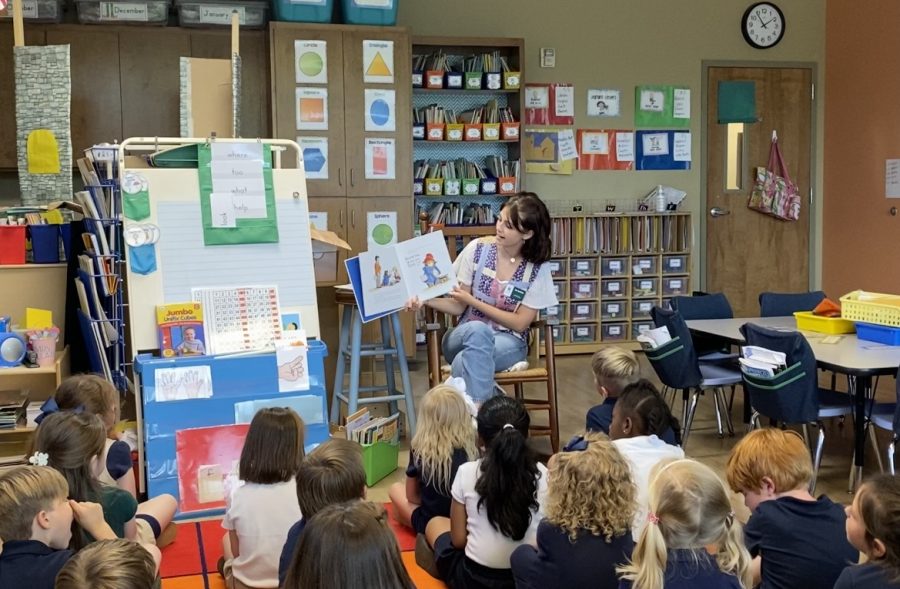Life in the teaching cohort
GC senior Dani Mathis teaches her classroom
September 28, 2022
Students in the education cohort are expected to teach in a classroom as well as attend classes every week. Every minute of the day for students in the education cohort counts. Most students start their mornings at 5 am in order to drive 30 minutes to an hour to their school districts. On the days they aren’t teaching, those few hours are used for homework, classroom planning, and more to keep up with the busy schedule of the cohort.
Juniors and seniors within the cohort are required to teach two to three times a week. For seniors, this schedule changes halfway through the semester, and they go from the expectations of teaching three times a week to five days a week.
The high expectations on these students can become a stressful environment to be in. Mackenzie Murad, a junior majoring in special education, has learned how to manage her stress.
“It’s definitely stressful, but I think the thing that has helped me the most is basically having my planner attached to my hip, so I know what I have to do and when,” Murad said. “I always try my best to start working on things when we get them and do them little by little until they’re due, so I don’t feel like I have an overwhelming amount of work to do. Another thing that I do that really helps keep me to be stress-free, or as stress-free as possible, is to dedicate one day a weekend to doing absolutely nothing,” Mackenize Murad, junior special education major.
Keeping a planner and a detailed schedule is a tool that many students within the cohort utilize within the teaching cohorts. It helps them to stay on task and take some of those daily stressors away from student teaching.
However, having a busy schedule can lead to difficulty in maintaining a social life. The amount of work can make it hard for students to keep up with family and friends.
“ I spend most of my weekends catching myself up with various assignments and projects, and with that, it makes it quite difficult to plan or schedule a two-hour-and-a-half drive home,” said Cate Talbot, senior early childhood education major. “So I have to be cautious with how I plan out my free time since I have to schedule everything out for work and for leisure. In a way, it makes me sad. I’d love to go home more often than I’m given the time to, and I’m assuming that the feeling is the same across many folks in the cohort.”
Keeping strong connections with people is an important way to be able to stay sand and destress from a long day. Sometimes those people could be family and friends, and not always having the time to see them can be difficult.
“One of the biggest pieces of advice given to us by previous seniors was to make sure your relationships are one of your biggest priorities as well as the cohort because this cohort can get so stressful and it can take a lot of energy out of you,” said Kaylee Gaisford, senior early childhood education major. “What has helped me the most is keeping up with my routine of teaching Monday, Wednesday, and Friday and doing homework from every day from 4 am to like 10 pm. I allowed myself an hour or more break in order to hang out with friends, catch up and get dinner.”
There are resources on campus that can help students that are feeling overwhelmed with school. GC provides resources for students to help manage their stress and mental health.
The Counseling Center has a new online system called TAO: Therapy assistance online. This self-help resource helps students that are feeling stressed or homesick, and it can be done from home.
It provides interactive modules, practice tools and daily logs to keep up with the person’s well-being, as well as a mindfulness library. This is something a person can do at their own pace and time in order to fit into one’s busy schedule on campus.
This is something a person can do that doesn’t have to be completed all at once but can be spaced out to fit the busy schedules on campus.
The counseling center also does sessions and workshops for students, and the goal of this is to show students different ways to manage their stress.
The student teachers in the cohort do a lot throughout their day-to-day life, so it is important that the GC community supports them through this stress.







